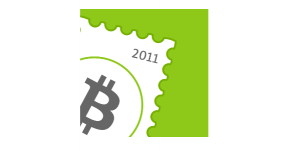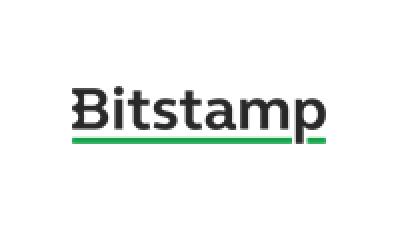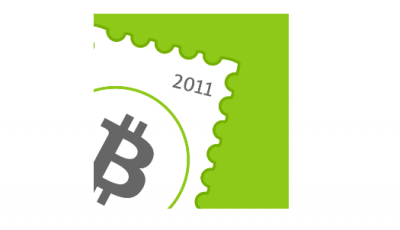Bitcoin exchange Bitstamp licensed to operate across EU
 The Luxembourg government approved Monday a national payment institution license for Bitstamp, making the company the first fully licensed and regulated bitcoin exchange in Europe.
The Luxembourg government approved Monday a national payment institution license for Bitstamp, making the company the first fully licensed and regulated bitcoin exchange in Europe.
According to a press release sent to CoinReport, the license goes into effect on July 1, 2016, and is “passportable” into all 28 member states in the European Union. The company also launched bitcoin-euro trading and is offering free trading in BTC/EUR for both new and existing clients for 30 days.
Bitstamp is also moving its headquarters to Luxembourg, which has a long history of fostering innovation and provides the financial and security awareness the company was seeking.
“This is an industry first,” said Bitstamp co-founder and CEO Nejc Kodric in an interview with Forbes. “We are entering a new era where [being a licensed exchange] is becoming an industry standard.”
The magazine reported that Bitstamp has spent the past two years implementing procedures to meet license requirements. This included installing the highest levels of security, processes for showing financial soundness and platforms for complying with AML/KYC regulations. The exchange will also be audited annually.
“We have put a lot of time and resources into the regulatory process with the goal of ensuring customers feel more confident in using Bitstamp’s exchange and products across the European Union,” said Kodric in the press release. “We are proud to have taken this important step for our customers and the digital currency/blockchain industry globally.”
In its report on Bitstamp’s new license, WIRED noted that 15 months ago hackers stole more than $5 million from the exchange, then based in Slovenia. Bitstamp started the process to obtain the Luxembourg license two years ago after failing to get similar approval in the UK, and noted the breach didn’t help. “With that happening during the [regulatory] process, it does bring extra scrutiny to out IT security,” said Kodric to WIRED.
As Bitstamp was seeking a country that would regulate it, former PayPal president David Marcus introduced the exchange and the blockchain investment firm Pantera Capital (which made a $10-million investment in Bitstamp in 2014) to the Luxembourg Consul General in San Francisco, reported Forbes. The parties met with Luxembourg’s prime minister in Pantera’s office in San Francisco to discuss how to make regulation more efficient for bitcoin companies. Kodric later met with several regulatory bodies, the finance ministry and a few bankers, said Forbes.
Kodric told the magazine that out of the governments he met with, he realized that “Luxembourg was by far the most forward-looking” and would be his best chance for bringing a bitcoin exchange under a regulatory scheme.
“[Luxembourg has] very good trend recognition so they see what’s developing and what has regulatory problems,” said Kodric to Forbes. “They’re very good at detecting what is the next big thing, picking the serious players in the industry and trying to convince them to come to Luxembourg.”
The country’s finance minister, Pierre Gramegna, said in the press release: “Luxembourg has a long-standing history as an international leader in innovation. That Bitstamp has chosen Luxembourg as its European hub only strengthens that reputation. I believe this announcement marks a milestone for bitcoin and digital finance in Europe.”
Perianne Boring, founder and president of the Washington, D.C.-based Chamber of Digital Commerce, said, “The fact that Bitstamp has gotten this license – across the EU – is blockchain history,” as reported by Forbes.
Boring’s organization is one of the founding bodies of the new Global Blockchain Forum, whose mandate is to shape international blockchain policy. She told the magazine that while blockchain policy groups are still investigating the situation in the United States, a passport-style scheme would certainly be considered a solution.
“The passport system in the EU is serving the industry well and highlights that the state-by-state approach here in the U.S. is broken, unnecessarily burdensome, and holding back innovation,” said Boring to Forbes. “And if the EU is able to passport companies in, why don’t we have a similar program in the U.S.?”
The magazine said the license will likely bring opportunities for banking partnerships for Bitstamp. “We believe that this is stability-inducing – that people will see this as a sign of Bitcoin going mainstream,” said Kodric to Forbes.
He added, “It also allows us to be taken seriously and partner up with more serious institutions, because we had a lot of discussions in the past but it always comes to a point where there’s no one overseeing us, and bigger financial institutions are still reluctant to work with unlicensed companies doing [financial technology].”
Dan Morehead, Pantera Capital’s CEO and Bitstamp’s chairman, told Forbes that “all of the procedures that were required from the Luxembourg government to be regulated are procedures that almost no other Bitcoin exchange could do.”
Bitstamp’s efforts will mitigate the fear and uncertainty banks have had with bitcoin firms, making it much easier to form banking relationships, Morehead said. “Over time, as more companies are regulated by a government like Luxembourg,” he said, “it will be much easier for the entire industry to get banked.”
WIRED noted in its article that Bitstamp has offered a blueprint for other businesses to obtain regulatory approval across the EU.
“I believe that others will follow relatively quickly,” said Kodric to the publication. “They have an easier task.”
Image credits:
Bitstamp image – Source
Perianne Boring’s photo – Courtesy of Chamber of Digital Commerce













